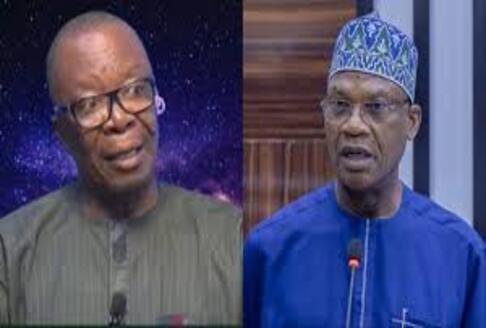Watching the ASUU President, Prof. Emmanuel Osodeke, speak on TVC filled me with dismay—not just for myself but also for what it revealed about the state of leadership in our universities.
First, the Professor repeatedly referred to me as a former member of the National Assembly despite the anchor’s clear introduction identifying me as a former Minister of Aviation. This simple but telling error revealed a troubling lack of preparation. It indicated he had neither read the report he came to critique nor conducted basic research before appearing on national television. It was, frankly, embarrassing.
Second, if Prof. Osodeke had taken the time to visit the Athena Centre’s website, he would have seen that I am not the author of the report in question. The Centre is led by a team of distinguished academics and professionals dedicated to research that meets global standards.
At the Athena Centre for Policy and Leadership we believe that credible research must be grounded in transparency, methodological rigour, and openness to public scrutiny. These are not abstract ideals—they are the foundation of evidence-based policymaking.
The ASUU President’s failure to grasp the difference between financial autonomy and accountability is deeply distressing. Our universities cannot demand public funds and rebuff public scrutiny. The issue raised by the Athena Centre’s report is not whether universities should manage their own finances; it is about whether they should do so without transparency.
At the end of each financial year, publicly funded universities should publish—as a matter of routine—what they received from the Integrated Payroll and Personnel Information System (IPPIS), what they remitted to the Treasury Single Account (TSA), and the details of any grants or donations from research institutions, alumni, and private donors. This is not a radical demand. It is a basic requirement of public accountability.
The Athena Centre’s report raises important issues. Regrettably, the ASUU President’s response was to misrepresent, deflect, and diminish them. I now better understand why many Nigerians struggle to appreciate ASUU’s position on the higher education crisis. If ASUU is to play a meaningful role in shaping the future of Nigerian education, it must do better.
I urge ASUU to move beyond defensiveness and take the lead in championing a new era of openness, accountability, and excellence in our universities. That would be a truly scholarly response.
Watch the TVC interview HERE.

